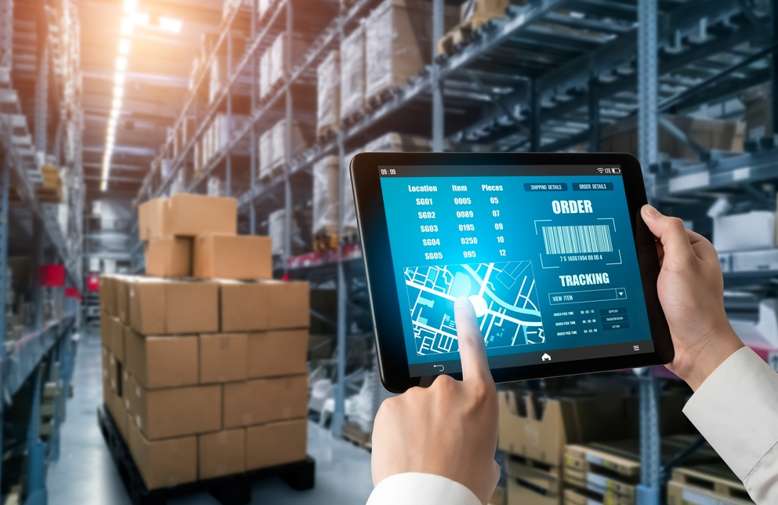
Impact of IoT on Supply Chain Efficiency & Logistics
Real-Time Revolution: How IoT Empowers Smarter, More Efficient Supply Chains
The global market environment is and will be forever challenging. That’s why the effectiveness and reliability of supply chains are among the main deciding factors for the success of companies in different industries. Today, the Internet of Things (IoT) technology has significantly transformed the entire supply chain into a fully connected network by providing visibility and control over all supply chain functions, from the sourcing of raw materials to the distribution of finished goods. IoT devices offer benefits such as real-time tracking, tracing, and monitoring of products.
Understanding the Essence of Supply Chain Visibility
The traditional supply chain management landscape was like trying to navigate blindly, as companies faced challenges in knowing where their products were and how they were doing. But things have shifted with the introduction of IoT technology. Picture each part, package, or delivery behaving like a small messenger, always keeping you informed about its whereabouts, condition, and progress instantly. With IoT sensors providing real-time tracking and monitoring of products, this level of transparency allows businesses to track their products’ entire shipping route from manufacturing plants to customers' homes.

Leveraging IoT in Supply Chain Management for Informed Decisions
The real wonder of IoT in supply chain management isn’t just collecting data but understanding it. Implementing IoT solutions can significantly enhance supply chain processes by improving efficiency and reducing costs. Through advanced analysis and machine learning, companies can transform raw IoT data into practical insights. These insights are crucial for recognizing patterns, anticipating shifts in demand, and pinpointing issues in the supply chain functions.
Predictive maintenance using IoT sensors and AI can optimize equipment maintenance, minimize costs, and avoid unplanned downtime. For example, IoT predictive analytics can predict demand changes, allowing businesses to adapt their manufacturing and stock levels accordingly. Anomaly detection algorithms, on the other hand, can identify deviations from normal patterns, alerting businesses to potential disruptions before they become major problems.
Fostering Collaboration and Trust
Globally, the supply chain resembles a strongly knitted web that connects all the links, and the stability of just one thread would adversely affect the entire system. Hence, coordination of supply chain partners is not only desirable but a must to ensure smooth operation of the system. IoT in logistics and supply chains makes it possible to have efficient and highly integrated interactions to allow regular data exchange among all the stakeholders. Logistics companies can use IoT technology to improve transparency and collaboration with suppliers and distributors.
IoT integration in business websites and platforms helps in establishing a tightrope environment in which information can flow without restrictions or limitations between all parts of the organization. For example, manufacturers that have visibility into production forecasts can regularly communicate that information to suppliers, enabling them to match their own levels of inventories and production schedules accordingly. Another IoT integration services example is that logistics companies can also share real-time tracking information with end customers, promoting transparency and building trust.
Addressing IoT Integration and Implementation Challenges
Even with all the promising changes it could bring, integrating IoT technologies into businesses comes with various hurdles. One major concern is the need to address data and IoT security, compatibility, and scalability issues. Companies need robust measures to protect data from cyber threats and ensure interoperability among IoT systems. Blockchain can enhance data security and integrity. Collaboration and standardization efforts are crucial. Businesses must invest in scalable infrastructure for real-time data management.
Seizing the Opportunities of IoT Integration
Despite these challenges, the benefits of IoT integration far outweigh the costs for forward-thinking organizations. IoT technology improves inventory management through dynamic tracking and traceability of products. Engaging with IoT technology allows businesses to explore new avenues of creativity, productivity, and market edge. Implementing IoT in storage facilities offers advantages for process optimization and financial profits. IoT efficiency facilitates proactive maintenance, monitoring assets, predicting demand, and refining supply chain operations, presenting a vast range of opportunities. Furthermore, as the expenses associated with IoT hardware and connectivity decline, even small to mid-sized enterprises (SMEs) can enhance their competitive stance against bigger corporations.

Empowering Businesses with IoT
Navigating the complexities of the Internet of Things and supply chain management can be a bit overwhelming, so having a strategic partner by your side makes all the difference. IoT supports and improves logistics operations by providing real-time data collection and monitoring, enhancing user experience, and enabling smoother flow of goods. Platforms like the Digital Freight Alliance (DFA) offer the essential logistics tools and technologies designed specifically to simplify supply chain operations – think of it as your easy-to-use toolkit for real-time visibility. Remote container management benefits include monitoring the location, temperature, and humidity inside shipping containers, ensuring optimal conditions during transportation. DFA membership unlocks valuable resources like a global network of freight forwarders, innovative tech partners, and seasoned industry experts – all dedicated to helping you succeed.
By tapping into the knowledge and support of DFA, you'll gain the confidence to transform your digital operations quickly, keeping you at the forefront of this ever-changing marketplace.
Embracing the IoT Revolution
The impact of IoT on supply chain visibility and governance is indisputable. With the incorporation of Internet of Things technology, any business can get the power to keep track of, analyze, and optimize its supply chain operations with a previously unattainable degree of precision and effectiveness. The first vital step in this journey of increasing the transparency of supply chain management is through definite determination to maximize the use and incorporation of the Internet of Things in supply chains.



